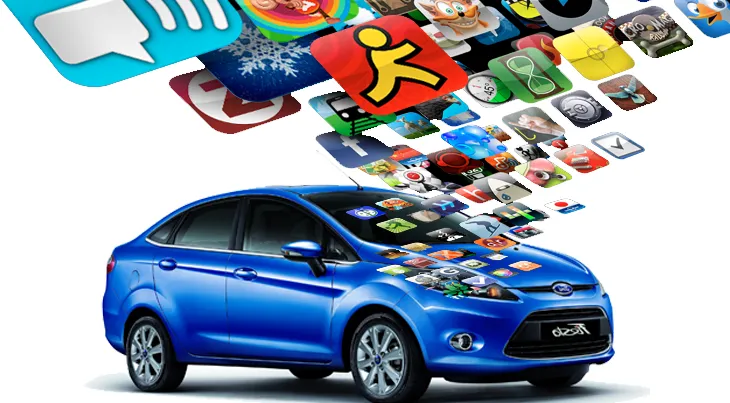IIT Guwahati graduates team up to create app that makes cars smarter and safer using data analytics
Owning a car is not a luxury any longer, but maintaining one can certainly take a toll on your pocket and patience. This is why a team of four IIT Guwahati graduates- Abhishek Maitreyi, Ankit Yadav, Lovish Choudhary and Jeevan Rathod - built CaRPM, an app that connects you to your car. It is aimed at being that one app that caters to every aspect of taking care of a car - from advice on how to drive in a way that improves the car’s health to detecting problems to pointing the user to the right mechanic.

Abhishek explains: “With CaRPM, your car can tell you what’s wrong with it and how you can improve its health. CaRPM also connects you with mechanics nearby. With rising fuel and maintenance costs, it is becoming increasingly expensive to own a car. With the help of the data that your car provides, users can drive these costs down significantly. The car’s ECU (Engine Control Unit) has enough data to recognise the source of most electrical problems and since CaRPM reads that data, it adds a lot of transparency to the whole transaction.”
CaRPM also ties up with local reliable service centres and repair shops to help users discover trustworthy centres near them. Insights from a car’s ECU data can be quite valuable to companies dealing with cars, such as car re-sellers, car rentals and cab aggregators.
Birth of CaRPM
When Lovish was having a discussion with his brother who dealt in car accessories, the topic of OBD2 scanners came up. On-Board Diagnostics (OBD) refers to a vehicle's self-diagnostic and reporting capability. Lovish talked to Abhishek and Ankit, who were in Delhi then as well and after someresearchon OBD2, the three of them decided to start CaRPM. Abhishek says, “We think that data is the new fuel. There are so many domains where effective use of analytics has resulted in huge improvements. Our cars are getting smarter every day. There’s plenty of data available to us to help us make smarter decisions about the way we drive, the car to buy and figure out the problem ourselves rather than relying solely on the mechanic’s expertise and honesty. It can help us reduce our fuel and maintenance expenses, and even prevent problems altogether.”
CaRPM launched the car servicing marketplace in August in Gurgaon and is currently finetuning the diagnostics part and building a more holistic product for car servicing and repairs.
About OBD2
OBD capabilities were introduced in automobiles to regulate emissions. The technology currently in use is OBD2. Most cars from foreign manufacturers, manufactured after 1996 and cars manufactured by Indian companies after 2010 are OBD2-compliant. All these cars have a number of sensors that feed data to the ECU. This data can be read via an OBD2 scanner that can be connected to an OBD2 port. The ECU stores all kinds of data points about the engine and this data can be analysed to understand the car's condition and the effects of your driving it.
Automobile service and Car Diagnostics Segment
There are a bunch of companies that have recently entered both the domains, i.e car diagnostics and automobile servicing. In car diagnostics, there are CarIQ and Zene, among others. Most of these companies are manufacturing their own OBD2 scanners, which can be quite expensive. CaRPM’s app works with any generic OBD2 scanner, which isconsiderably lower in cost as compared to the other scanners.
A lot of companies -Cartisan, Bumper, for example- are cropping up in the car servicing and repair space. CaRPM sends the user’s problem to centres and gets quotes from them. The user can then choose the centre based on prices, location etc. This way, centres can compete to get the user, and customers end up getting a better deal. There are a lot of inefficiencies in this market and there is little transparency in pricing and qualityassurance. By getting the centres to commit upfront, CaRPM ensures that the customer doesn’t get any unpleasant surprises after his/her car is in the garage.
Automobile market in India
India has about 30 million cars currently. By 2020, this number would have gone upto 54 million and according to Ford, India will be the third largest auto manufacturer in the world. The automotive aftermarket is largely unorganised and there is a lot of scope for technology and innovation. The IoT industry in India will touch USD15 billion by 2020 and India will have around 2.7 billion IoT devices by then. With the penetration of smart cars and app-based technology, let us see where CaRPM makes its mark in this market space.
Currently bootstrapped, CaRPM is looking to raise funds. There are preliminary talks going on with investors.
For more details, visit







